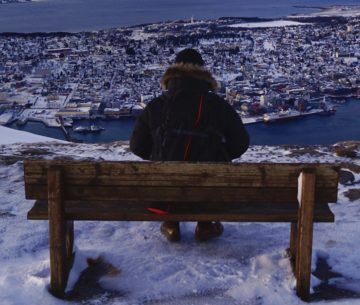Tim Brennen in Psyche:
 We tested 100 participants twice on a range of tests: some took them first in summer and then winter, and some in the opposite order. Among the tasks, there was a test of pure speed (‘press this button as quickly as possible as soon as you see a circle in the middle of the screen’); a test of immediate memory for digits; a test of memory for words presented 10 minutes previously; the classic ‘Stroop test’ (that measures mental control); an alertness task; a face-recognition task; a time-estimation task; and a verbal fluency task. Most tests showed no difference in performance between summer and winter, and, of those that did, four out of five actually suggested a winter advantage. The ‘Arctic cognition’ paper, as we called it in 2000, was disseminated over the whole world and had its 15 minutes of fame in newspapers and magazines.
We tested 100 participants twice on a range of tests: some took them first in summer and then winter, and some in the opposite order. Among the tasks, there was a test of pure speed (‘press this button as quickly as possible as soon as you see a circle in the middle of the screen’); a test of immediate memory for digits; a test of memory for words presented 10 minutes previously; the classic ‘Stroop test’ (that measures mental control); an alertness task; a face-recognition task; a time-estimation task; and a verbal fluency task. Most tests showed no difference in performance between summer and winter, and, of those that did, four out of five actually suggested a winter advantage. The ‘Arctic cognition’ paper, as we called it in 2000, was disseminated over the whole world and had its 15 minutes of fame in newspapers and magazines.
I moved on to other research topics, but last year, now working at the University of Oslo at a mere 59°N, I decided to revisit the science of human seasonality.
More here.
